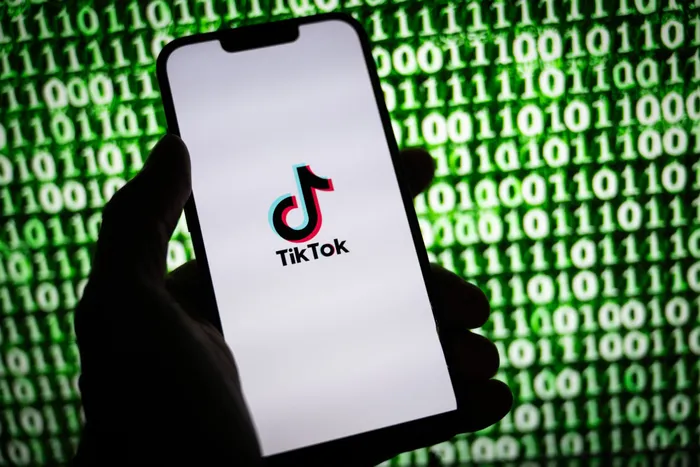Social media impact on mental health, relationships and democracy

Impact: Social media has become central to daily life, influencing everything from friendships to political opinions.
Image: Sebastien Bozon / AFP.
Michael Andisile Mayalo
Social media has fundamentally reshaped how we connect, communicate, and engage with the world.
Facebook, Instagram, Twitter, and TikTok have become central to daily life, influencing everything from friendships to political opinions. While social media has brought numerous benefits, such as enabling communication across distances and offering spaces for self-expression, its impact on mental health, relationships, and democracy has raised significant concerns.
As we live in a digital age, it's important to reflect on social media's positive and negative effects and how we can address its challenges.
Mental Health: A double-edged sword
Social media's most significant and debated impact is its effect on mental health. On one hand, social media can offer a sense of community, allowing people to connect with others who share common experiences, interests, or challenges. For individuals dealing with mental health issues, social media can provide access to support groups, resources, and the comfort of knowing that others are going through similar struggles. This can be especially valuable for marginalised communities or people in isolated situations.
However, the downside of social media on mental health is growing increasingly apparent. Social media platforms are designed to keep users engaged, often leading to addiction and overuse. Research has shown that excessive social media consumption is linked to heightened anxiety, depression, and feelings of loneliness. The pressure to present an idealised, filtered version of oneself on these platforms can also fuel low self-esteem. Constant comparison to the carefully curated lives of others can leave individuals feeling inadequate, especially among younger users who are still developing their sense of identity.
Moreover, exposure to cyberbullying, online harassment, and distressing news on social media can amplify feelings of anxiety and hopelessness. The constant barrage of negative information and toxic interactions can leave users feeling disconnected and mentally drained, further exacerbating mental health issues.
Relationships
Social media has changed how people interact with friends, family, and romantic partners. It has made it easier to stay in touch with loved ones across distances, providing a platform for sharing experiences and offering emotional support. For example, social media can help people maintain relationships that might otherwise fade due to geographical separation. However, social media also presents challenges in the realm of personal relationships. One of the most significant concerns is privacy.
Social media makes it difficult to maintain boundaries, and partners may find themselves grappling with the balance between public sharing and personal moments. In some cases, oversharing intimate details online can lead to misunderstandings, jealousy, or feelings of betrayal. Social media also creates unrealistic expectations in romantic relationships. The rise of “relationship goals” posts, where couples share perfect, picture-perfect moments, can distort what healthy, real relationships look like. Individuals may feel dissatisfied with their relationships when comparing them to the highlight reels seen online, ignoring the behind-the-scenes realities of everyday life. Moreover, the ease of digital communication can lead to emotional infidelity or over-reliance on online interactions, which can strain face-to-face connections.
Democracy: A new battleground perhaps
the most concerning aspect of social media’s influence is its effect on democracy. While these platforms have democratized information-sharing, they have also introduced significant challenges to the integrity of democratic processes. Social media has become a crucial tool for political engagement, enabling activists, candidates, and citizens to share ideas and mobilize for causes. Movements like Black Lives Matter have gained widespread visibility through social media, offering marginalized groups a platform to advocate for change. However, the same platforms that facilitate political engagement also enable the spread of misinformation and disinformation. False narratives can go viral in a matter of hours, influencing public opinion and even swaying elections.
Algorithms that prioritize sensational and emotionally charged content can deepen political polarization, creating echo chambers where people are exposed only to viewpoints that align with their beliefs. This division has made it harder for societies to engage in meaningful, cross-ideological discussions. Moreover, the anonymity that social media provides has emboldened individuals to engage in harmful behaviours, including spreading hate speech and extremist ideologies. The lack of accountability for online actions has led to the proliferation of online harassment, which undermines civil discourse and contributes to a breakdown in social trust. Striking a BalanceThe effects of social media on mental health, relationships, and democracy are complex and multifaceted. While these platforms offer significant benefits, they also present serious challenges. The key to navigating this digital landscape lies in finding a healthy balance—using social media in ways that foster connection without compromising well-being, relationships, or democratic values.
For mental health, we must promote digital literacy and encourage responsible use of social media, along with taking breaks to focus on offline activities that support mental well-being. In relationships, open communication and boundaries are crucial to ensure that social media does not erode trust or intimacy. Finally, to protect democracy, we must work to combat misinformation, promote media literacy, and foster more constructive online dialogue. Ultimately, social media is neither inherently good nor bad—it’s how we engage with it that will shape its impact on our lives and society. With awareness and intention, we can navigate the digital world in ways that enhance our connections and preserve our well-being.
* Mayalo is an independent writer, analyst, and commentator